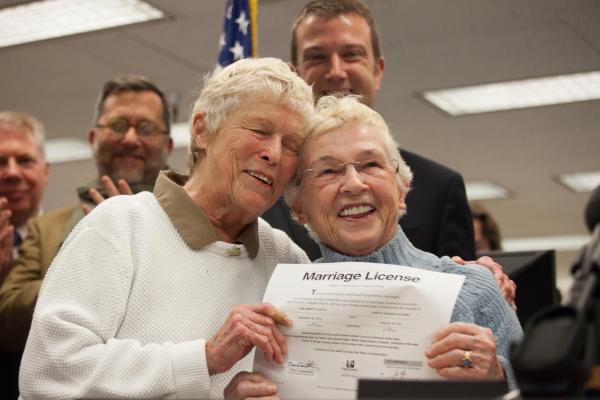WASHINGTON — The Supreme Court's decision to take up the explosive issue of same-sex marriage will thrust the high court into a policy debate that has divided federal and state governments and courts, as well as voters in nearly 40 states.
The court's agreement to hear challenges to the federal Defense of Marriage Act and California's Proposition 8 ban on same-sex marriage moves the issue to the top of the national agenda following a year in which advocates scored major legal and political victories.
The court likely will hear the cases in March and rule by late June on a series of questions, potentially including one of the most basic: Can states ban gay marriage, or does the Constitution protect that right for all couples? It also will decide whether gay and lesbian married couples can be denied federal benefits received by opposite-sex spouses.
Any decisions will make history on an issue that has divided the nation for decades. Nine states and the District of Columbia now permit same-sex marriages, and a decision against California's Prop 8 ban would add the 10th and largest state.
A ruling against the 1996 federal law could lead to a spike in gay marriages in all those states. Several more states are likely to consider allowing same-sex marriages in 2013.
Read the Full Article

